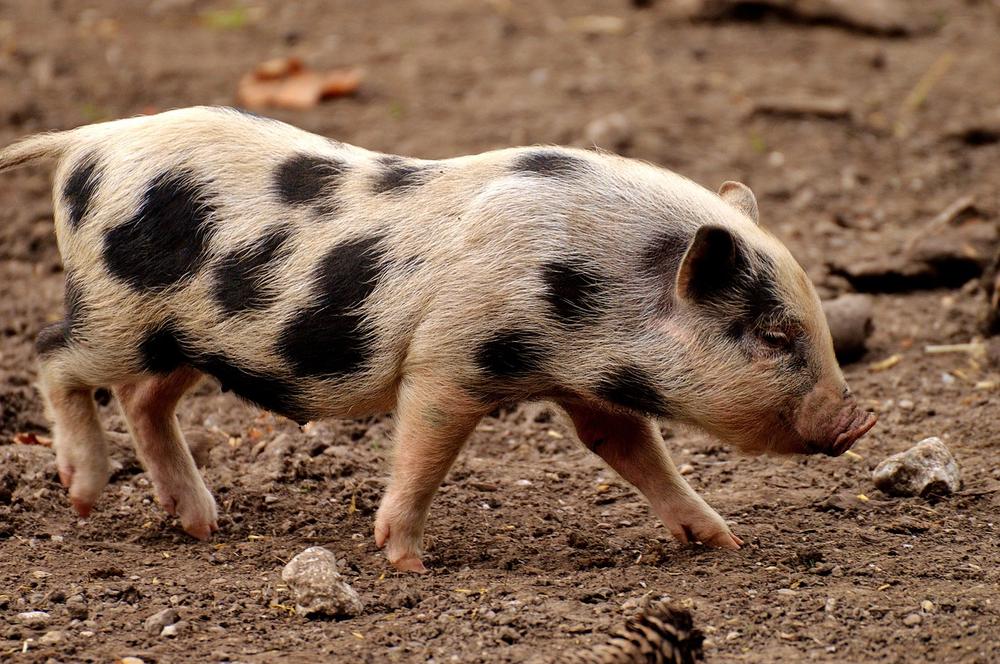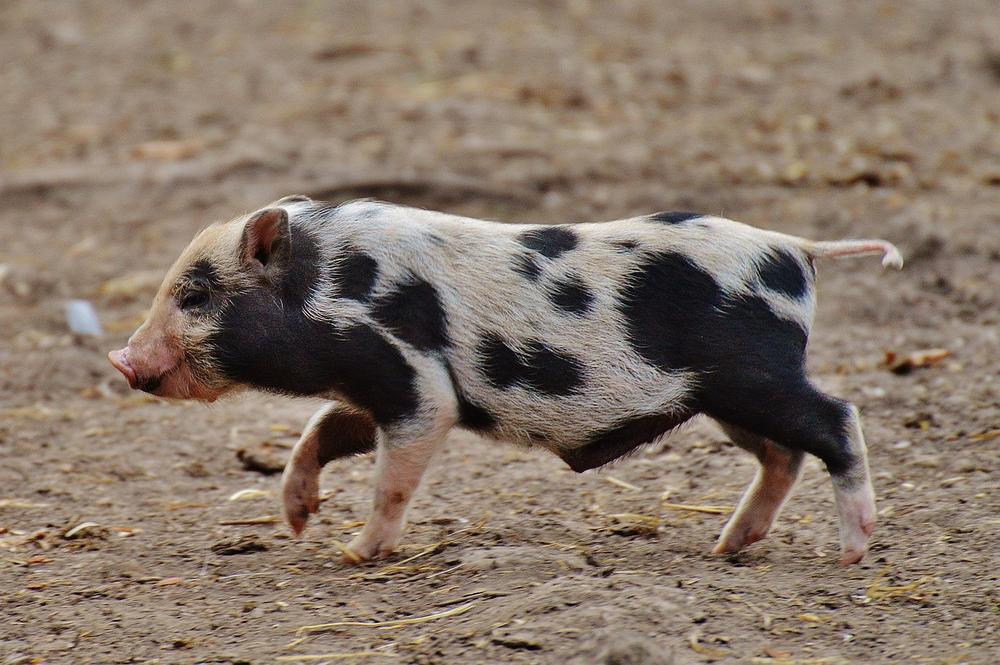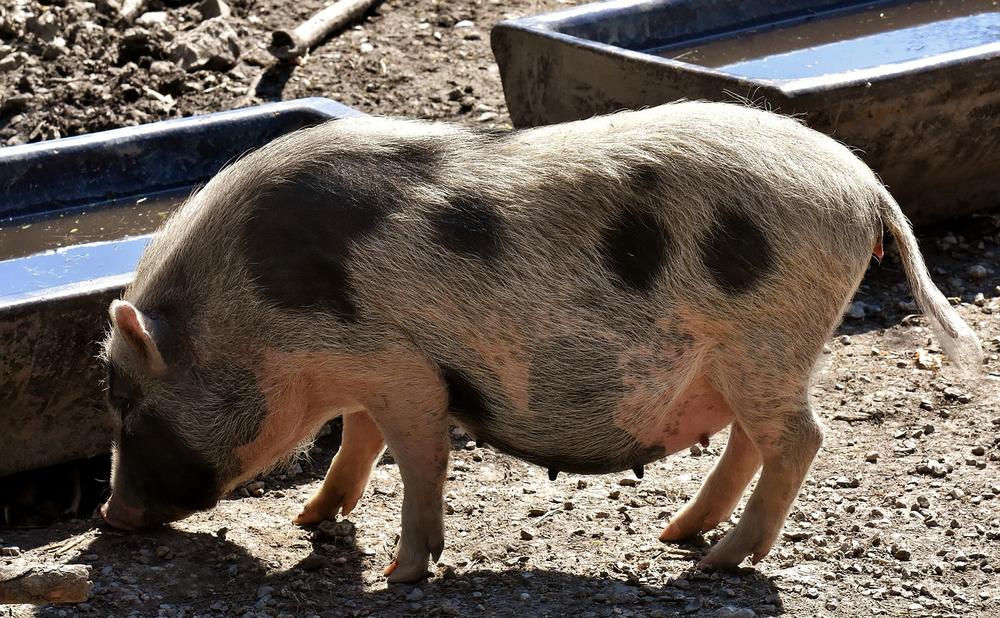Do Pigs Carry ANY Diseases That Would Make Humans Sick?

Pig diseases.
They can be a nightmare.
They can ruin your health.
They can mess up your life.
They can turn your world upside down.
But worry not, my friend. 😉
In this guide, I'll take you on a journey to understand the risks and how to protect yourself.
Ready?
Let's roll!
The Risk of Zoonotic Diseases Associated With Swine
Let me break it down for you:
- In poor countries, where healthcare and hygiene are lacking, the risk of zoonotic diseases from pigs is especially high.
- Pigs can carry different diseases, like intestinal worms, brucellosis, and swine flu, which can be transmitted to humans.
- Some specific pig diseases that can affect humans include tapeworms, E. coli, hepatitis E, and salmonella.
- These diseases are spread through germs passed between animals and people, posing a serious threat.
- Diseases that can be transmitted from pigs to humans range from tuberculosis and measles to avian flu and Covid-19.
- Key pig-to-human diseases include E. coli, tapeworm infection, brucellosis, salmonellosis, and trichinosis.
- Symptoms can vary, including gastrointestinal problems, fever, joint pain, organ inflammation, and even death.
- Transmission can occur through direct contact, eating infected meat or drinking contaminated water, insect bites, swimming in polluted water, or handling infected animals.
- Factory farming and unsanitary conditions worsen the spread of these diseases.
- Infectious diseases can be contracted by touching pigs or their bodily fluids, contaminated surfaces, or inhaling/ingesting droplets.
- If pork and other animal products are not properly cooked, they can contain harmful pathogens that cause foodborne infections.
- Contaminated water contaminated with pig feces can contribute to the spreading of various illnesses.
Stay informed and stay safe! 😷

So as we've discussed the risks of zoonotic diseases associated with swine, I wanted to share my insights on an interesting topic - the ability of pigs to drink through their nose.
You may be intrigued to know more about this phenomenon and the significance of water for pigs.
That's why I recommend checking out my blog post on Pig Nasal Drinking.
Transmission of Hepatitis E Virus from Pigs to Humans
Transmission of hepatitis E virus from pigs to humans may come from more than just eating tainted pork.
It could also happen through pig feces or direct contact with infected swine.
You have to realize that certain groups, such as kids, seniors, pregnant women, and those with weakened immune systems, face a higher risk of falling seriously ill due to zoonotic diseases.

To safeguard yourself, maintaining good hand hygiene is crucial.
Wash your hands regularly and thoroughly.
Moreover, stay away from sick individuals who might be carrying the virus and potentially transmit it to you.
Knowledge and preventative measures can make a significant difference in keeping you safe.
Influenza A Virus: Potential for Transmission from Pigs to Humans
Genetic reassortment: the emergence of novel flu strains
So, here's the deal with influenza A virus, also known as the flu:
You know, the flu can actually be transmitted from pigs to humans.
How crazy is that, right?
It happens because of something called genetic reassortment.
It's when different flu viruses from pigs, birds, and humans exchange their genetic material.
This can lead to the creation of completely new strains of flu that we've never seen before.
And let me tell you, these new strains are something we really need to watch out for.
They can cause a lot of trouble!
Differences between pig flu and human flu
Now listen, there are some major differences between the flu viruses that pigs get and the ones that affect us humans.
Because of these differences, guess what?
The vaccines we use to protect ourselves from the flu don't work against the flu in pigs.
I know, it's a bummer.
We can't catch a break sometimes.
Let me break it down for you even more.

Among pigs in the US, there are three main types of flu viruses that circulate:
H1N1, H1N2, and H3N2. These nasty bugs can spread through droplets, close contact between infected and uninfected pigs, and even by touching things that have been contaminated.
Risks and precautions for caretakers and pig handlers
If you're someone who takes care of or handles pigs, this is important information for you.
Listen up!
You might be at risk of catching those flu viruses from these adorable creatures. Can you believe it?
Pigs can actually get the same flu viruses that usually affect humans and birds, especially if the people taking care of them are carrying those pesky flu bugs.
Now, I want to be honest with you, my friend.
The flu vaccines available for pigs might not give you complete protection.
It's just the way things are. Better to be safe than sorry, right?
There have been cases in the past where people got sick with different flu viruses after being around pigs at fairs.
So, if you're a caretaker of pigs, it's strongly advised that you get your annual seasonal flu vaccinations.
And hey, let's look out for each other, okay?
If anyone in your family starts showing flu-like symptoms, especially after being around pigs or places where they live, it's time to seek medical treatment.
Don't ignore it!
Take care of yourself and those adorable little pigs!
Well, now that we know how crazy it is that pigs can transmit the flu to humans, let's talk about another potential disease you need to be aware of when handling these adorable creatures.
It's called Swine Erysipelas, and trust me, you'll want to take precautions to avoid catching it!
Preventing Swine Erysipelas Transmission to Humans
The use of personal protective equipment (PPE) is extremely important in preventing Swine Erysipelas.
Here's how you can effectively stop the spread of this bacterial infection:
- Always wear gloves when handling pigs or processing pork. This minimizes direct contact with the bacteria and reduces the risk of transmission.
- Wear a mask to protect yourself from inhaling any airborne particles that may contain the bacteria. It's especially important when working closely with pigs or assisting during birthing.
- Follow strict hygiene practices. Wash your hands thoroughly with soap and water before and after handling pigs or pork products. Regularly disinfect surfaces and equipment to further reduce the chances of contamination.
- Work closely with a veterinarian to develop effective herd management plans and vaccination strategies. By being proactive and taking preventive measures, you significantly reduce the risk of infections for both pigs and humans.
Taking these precautions not only keeps you safe but also improves the well-being of the pigs and all in all health of your operation.

Stay safe and keep those pigs healthy!
But did you know that there are other potential diseases that can be transmitted from pigs to humans?
For instance, Streptococcus suis, a bacteria that can cause serious illnesses in both pigs and humans.
Let's explore how nutritional interventions could play a crucial role in reducing the prevalence of this infection...
Streptococcus Suis and the Potential of Nutritional Intervention
To bring down the number of Streptococcus suis infections in pigs, nutritional interventions can make a big difference.
But what do these interventions involve and how do they work?
Let me explain it to you:
- Better pig diets: By optimizing the nutrients in their food, farmers can strengthen the immune system of pigs, making them less likely to get S. suis infections.
- Adding specific substances to the feed: Some additives, like probiotics or antimicrobial compounds, have been proven to improve pig health and lower the risk of S. suis infections.
- Biosecurity measures: These don't directly affect nutrition, but good practices like keeping facilities clean and controlling pig movements can greatly reduce the spread of S. suis among farms.
- Vaccination: Vaccines can also be seen as a nutritional intervention because they help the pig fight against S. suis by boosting its immune response.
Pork producers can greatly reduce the likelihood of S. through the implementation of these techniques.
Suis outbreaks, protecting both their pigs and themselves from potential illnesses.
The Role of Pigs as Hosts for Pathogen Adaptation and Recombination
You might not know this, but pigs actually have a pretty big role in the spread of diseases.

It's kind of surprising, right?
Here are some important things to know about how pigs act as hosts for pathogens and their ability to adapt and recombine:
- Pigs have immune systems that are very similar to ours. This means they can get sick from a lot of the same diseases we can.
- Because of their physiology, pigs can carry viruses and bacteria from different species all at once. Basically, they become these mixing vessels where different germs can interact and share genetic material.
- The way pigs are kept on factory farms makes it really easy for diseases to spread quickly among them. That's why you see so many different types of diseases in pig populations on these farms.
- An example of this is swine flu. Pigs act as hosts for the influenza virus to mix and match genes from human and avian flu strains. That's how these new strains of highly contagious flu pop up.
- To protect ourselves and the environment from these zoonotic diseases, experts say going vegan is a good idea. By cutting back on eating pork and other animal products, we help reduce the breeding grounds for these diseases.
- Going vegan doesn't just lower our risk of getting sick—it's also great for the planet. Animal agriculture leads to deforestation, water pollution, and greenhouse gas emissions.
- So by choosing a vegan lifestyle, we're benefiting our own health and helping save the planet. It's a win-win situation.
Next time you see a cute little piggy, remember they're not just farm animals—they play a part in the whole world of pathogen adaptation and recombination.
Pigs: Crucial Role in Disease Transmission Prevention
Key Takeaways:
- Zoonotic diseases can be transmitted from pigs to humans, particularly in low-income countries.
- Specific pig zoonoses include E. coli, tapeworm infection, brucellosis, salmonellosis, streptococcus suis, hepatitis E, pseudorabies, ringworm, listeria, and trichinosis.
- Symptoms of pig zoonotic diseases range from gastrointestinal issues to fever, joint pain, organ inflammation, and even death.
- Pig zoonotic diseases can be spread through direct contact, ingestion of infected meat or water, insect bites, swimming in contaminated water, and handling infected animals.
- The spread of these diseases is worsened by factory farming and unsanitary conditions.
- Infections can also occur through contact with pigs or their bodily fluids, contaminated surfaces, or inhaling/ingesting droplets.
- Proper cooking of pork and animal products is essential to prevent foodborne infections.
- Young children, the elderly, pregnant women, and immunosuppressed individuals are more susceptible to severe illness from zoonotic diseases.
- Practice regular hand hygiene and avoid close contact with sick individuals to protect yourself.
- Flu viruses, including H1N1, H1N2, and H3N2, can be transmitted from pigs to humans, and human flu vaccines may not be effective against pig flu.
- Caretakers of pigs are recommended to receive annual flu vaccinations.
- Swine erysipelas and Streptococcus suis are bacterial infections that can be transmitted from pigs to humans through handling and processing pigs.
- Effective management strategies and working closely with a veterinarian are essential to prevent the spread of infections.
- Global pork production has led to an increase in pig diseases, and adopting a vegan lifestyle can help lower the risk of zoonotic diseases and preserve the environment.
And that's all for today folks.
Before you leave, can I ask you something? Did my blog post help you out? If it did, it would mean a lot to me if you could share it with your friends and family. Just click on any of the social media sharing icons to share it right away. Thank you so much!
Until next time,
-Chris Campbell